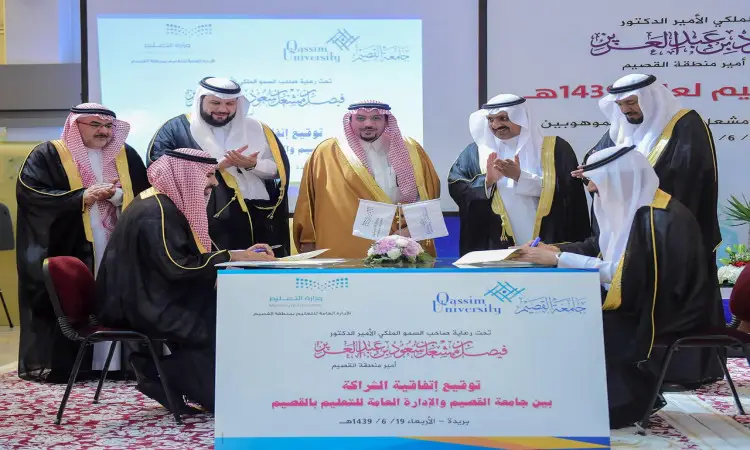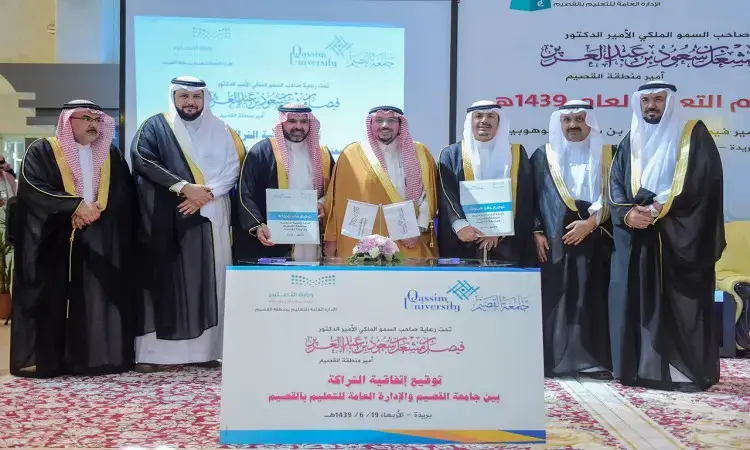Qassim University signed a joint cooperation agreement with the General Administration of Education in Qassim, in the presence of His Royal Highness Prince Dr. Faisal bin Meshal bin Saud, Governor of Qassim, to strengthen the bonds of work and partnership between the two entities and exchange experiences and means to develop the educational process, develop students' skills and student activities and programs, in addition to caring for the talented, investing the time of young people, activating scientific research, and identifying and activating cooperation mechanisms between them.
This agreement, signed by Dr. Ali Al-Seif, Vice President for Educational Affairs, and Mr. Abdullah bin Ibrahim Al-Rukayyan, Director General of Education in Qassim Region, is based on the directives of His Highness the Emir of Qassim Region regarding the integration of efforts and strengthening cooperation and partnership relations between the various development entities in the region, and to support the cooperation and partnership relations between the university and the General Administration of Education in Qassim Region.
The two signatories to the agreement aspire to achieve their common goals, which are to build the student's Islamic, national and intellectual personality in terms of knowledge, skills and values, to promote loyalty and national belonging and consolidate the correct concepts among students of both sexes, in addition to providing advanced and accredited education to prepare fully qualified competencies that meet the needs of the labor market, support sustainable development programs and projects in the Qassim region, and contribute to building a knowledge society.
The agreement aims to provide distinguished community services and applied research to improve the local community and contribute to building the knowledge economy, using the latest administrative, technical and informational methods, contributing to community service through training and continuous education, consolidating the concepts of sustainable development, environmental preservation and information awareness, in addition to making available various information sources for educational, research and applied purposes, especially those related to community issues, and the construction, development and maintenance of these sources.
For his part, Dr. Ali Al-Saif, Vice President for Educational Affairs, said that this agreement is expected to enhance cooperation between the General Directorate of Education in Qassim and the university's colleges and deanships in the field of public lectures, seminars, specialized training programs, specialized scientific research and studies, participation in the implementation of programs for people with special needs, and encouraging scientific studies and research in these fields.
Al-Saif added that under this agreement, joint work teams will be formed between the two entities, holding workshops, meetings and visits required by joint programs and activities, and providing mutual facilities from both parties to achieve the optimal environment for the implementation of joint programs and activities.



